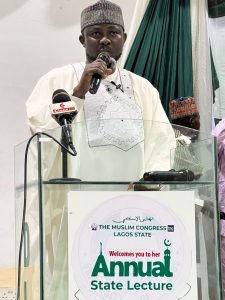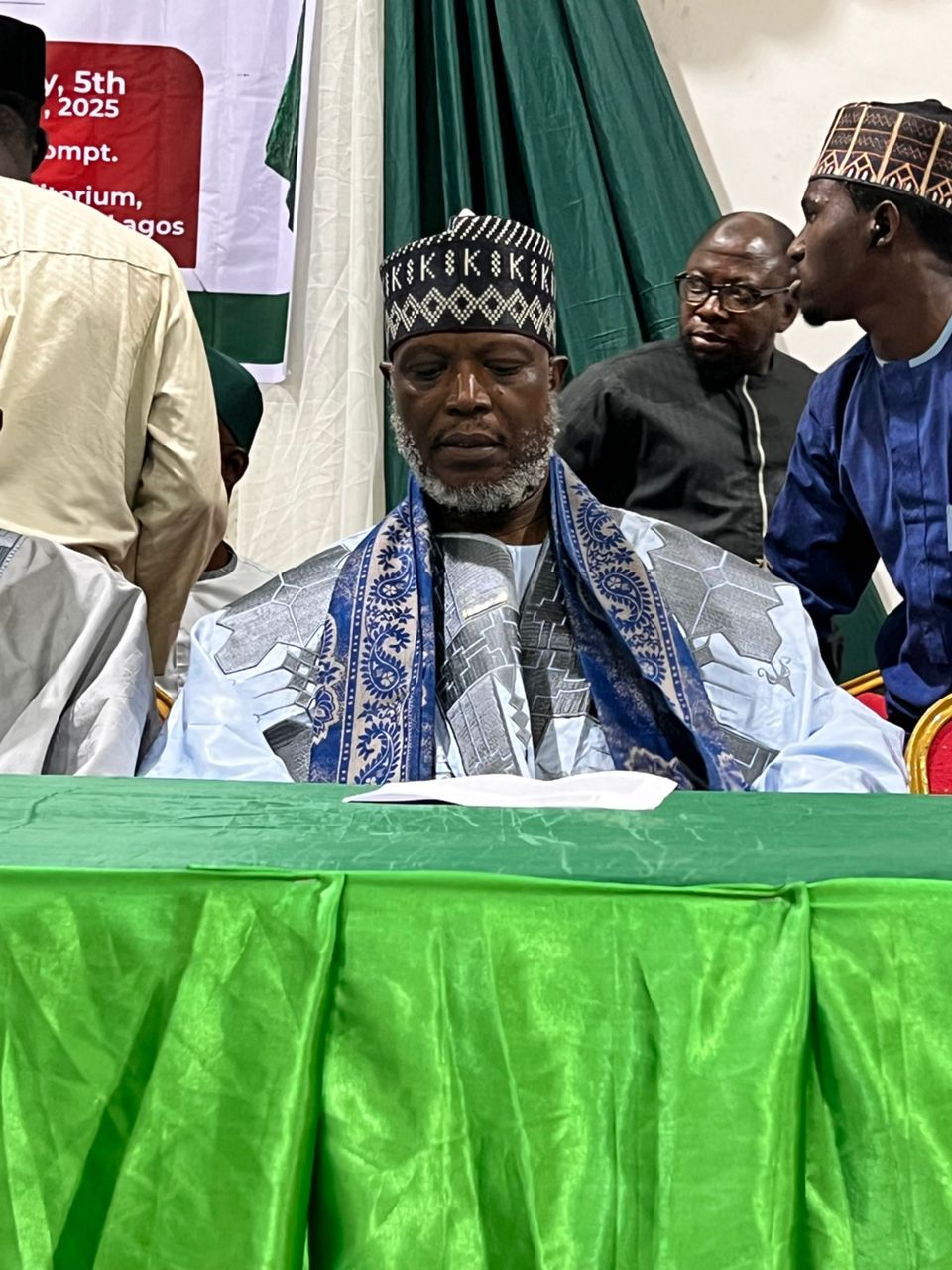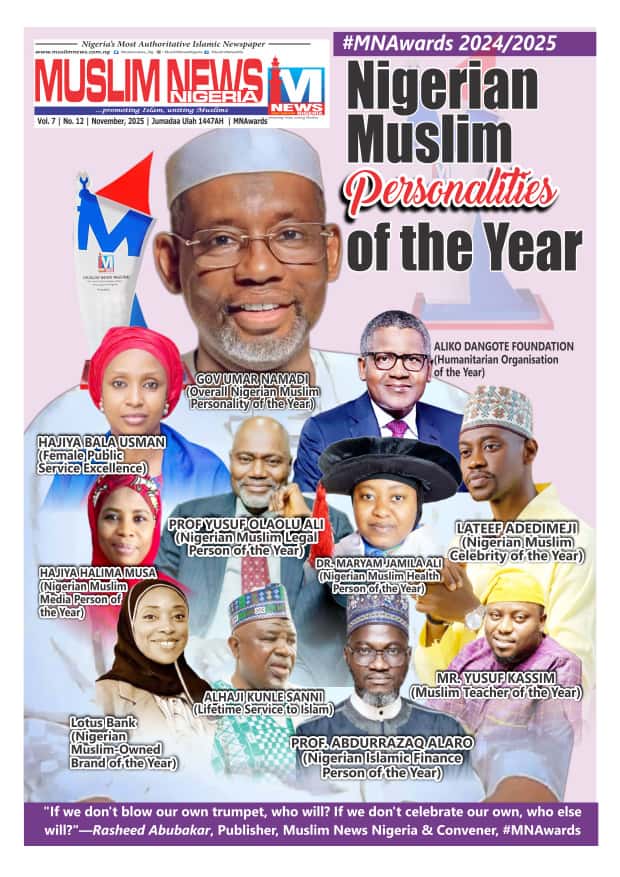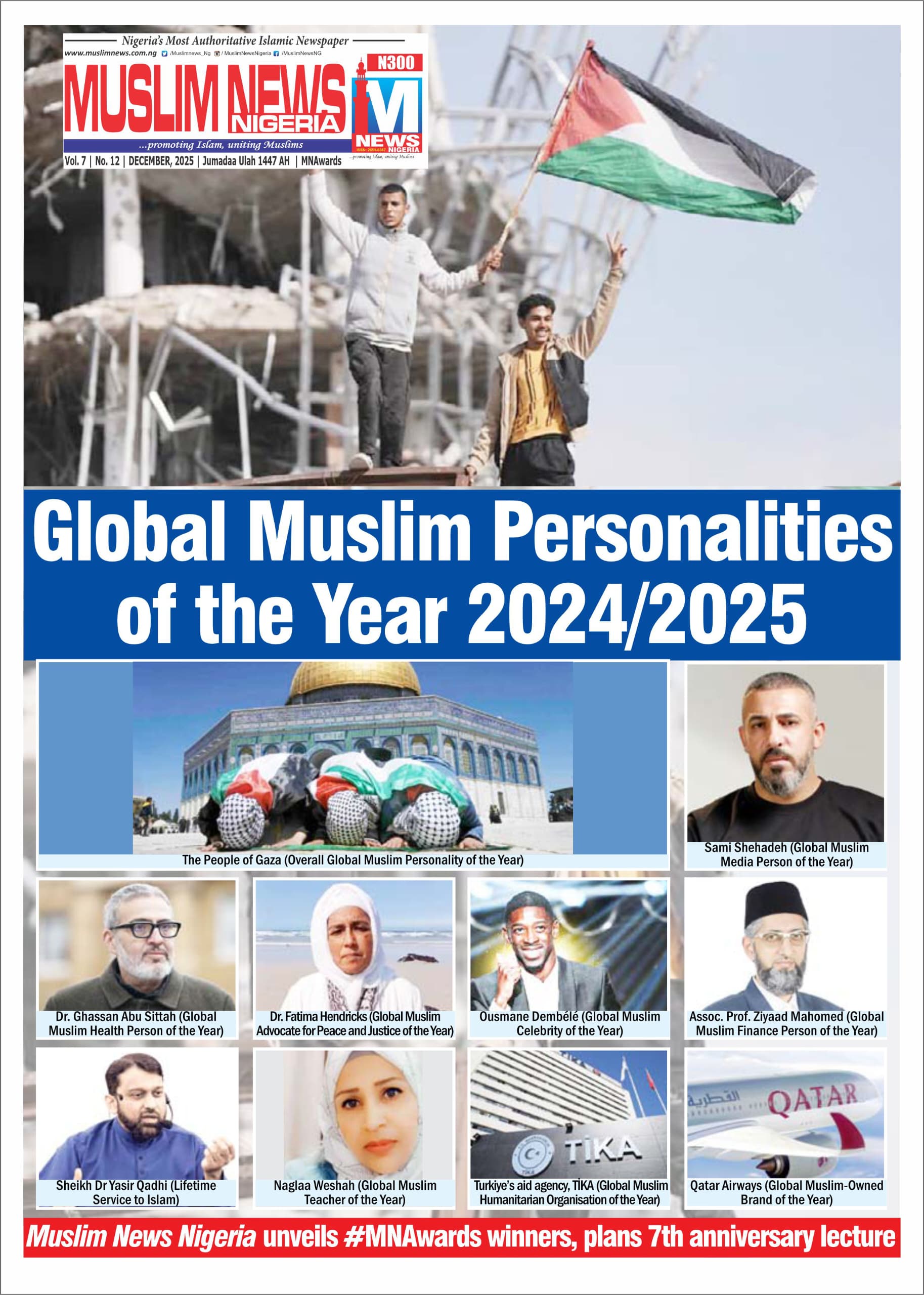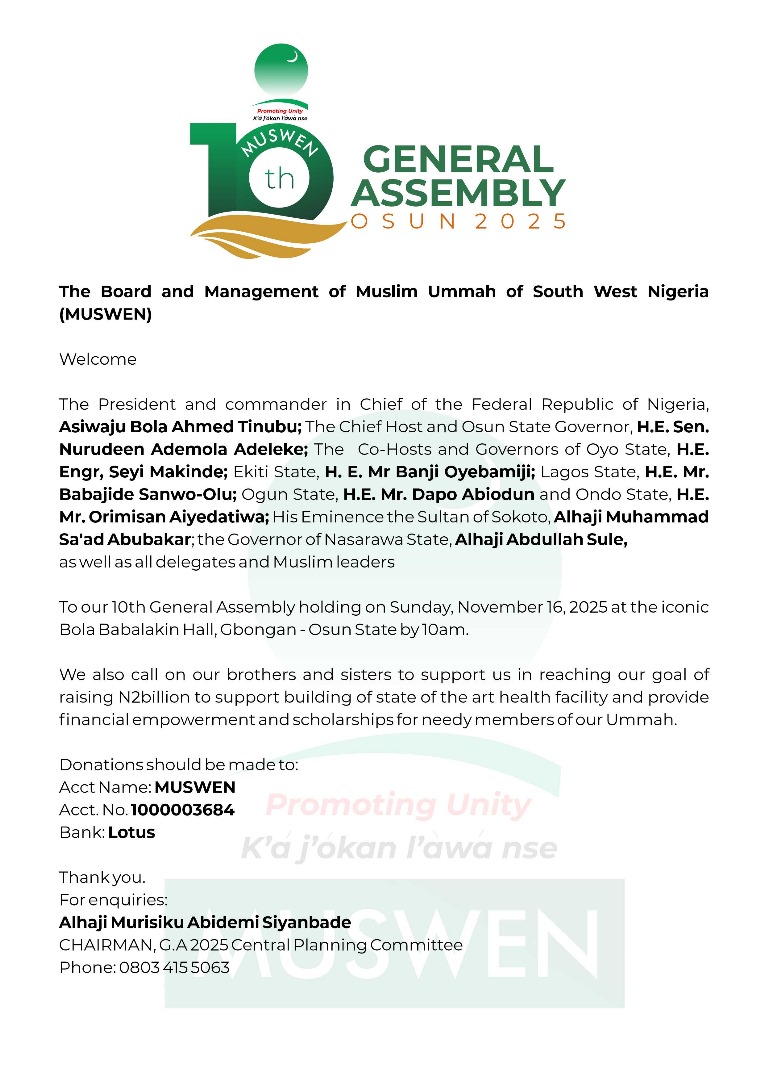Khaleefatu Zuglool and Head of Academics at Daru Da’wah wal-Irshad Institute of Arabic and Islamic Studies, Sheikh Dr. Ishaq Sanusi, has called on Nigerian leaders at all levels to take deliberate and strategic steps toward national development by prioritising internal security, educational reforms, and economic diversification.
Dr. Sanusi made the call while speaking at the 18th Annual State Lecture of The Muslim Congress (TMC), held on Sunday at the Nurudeen Alao Auditorium, DLI, University of Lagos, Akoka, Lagos.
Themed “Nigerian State and Lessons from Our Contemporary History”, the event formed part of TMC’s nationwide lecture series held simultaneously across nine states, including Abuja, Osun and Ogun, to mark Nigeria’s 65th Independence anniversary.
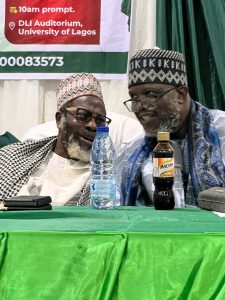
The respected scholar stressed that no meaningful development can take place in an insecure nation. “A nation without security is a nation in crisis,” he said, urging the government to boost the operational capacity and welfare of the armed forces in order to effectively combat insecurity.
On education, Sheikh Sanusi advocated comprehensive reforms from the primary to tertiary levels, noting that quality education remains the foundation for any nation’s progress.
He further called on leaders to embrace accountability, stressing that those in authority must lead by example and take responsibility for the state of the nation.
The respected Muslim scholar urged economic diversification, warning against over-dependence on a single source of income. “We must expand our economic base beyond oil and embrace innovation, agriculture, and industry for sustainable growth,” he said.
Linking new world order to Islamic teachings
Speaking further, Sheikh Sanusi offered a historical and Islamic perspective on the topic: “the new world order: local political dynamics, global diplomacy, and pathways to genuine national sovereignty.”
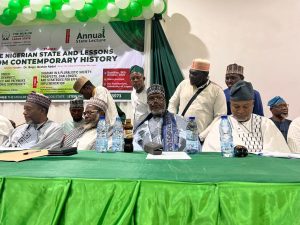
The respected Muslim scholar argued that while many view the New World Order as a modern political phenomenon, its principles have long existed within the framework of Islam.
According to him, “It has been in existence since the inception of Islam. The problem is that Muslims have abandoned the teachings of Islam, and that’s why we don’t recognise it.”
He defined the New World Order as a proposal for global governance, historically championed by world powers.
Citing U.S. President Woodrow Wilson as one of the first global leaders to introduce the term, Zughool explained that the concept emerged in response to the destruction caused by the First World War (1914–1918).
According to him, key causes of the war included: The aggressive use of military power by dominant nations. The formation of opposing alliances—Axis powers (Germany, Austria-Hungary, Italy) versus Allied powers (France, Britain, Russia) and Imperialist ambitions, such as territorial expansion by force, among others
Extreme nationalism and racial superiority ideologies
Khaleefatu Zuglool also referenced the infamous 1884 Berlin Conference, where European powers divided Africa among themselves without African representation, calling it a clear example of imperialism and global injustice.
He noted that after World War I, Wilson proposed the League of Nations to promote peace, but it ultimately failed, as evidenced by the outbreak of World War II just two decades later (1939–1945).
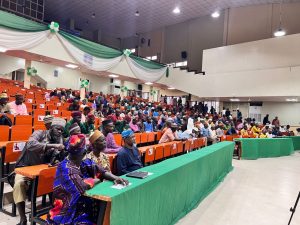
The respected Muslim scholar concluded that understanding these historical events is essential for Muslims to comprehend global politics and reassert Islamic values in addressing injustice and imbalance in today’s world.
Amir TMC urges deep, sober reflection
Amir of The Muslim Congress (TMC), Alhaji Abdulwasi’i Bangbala, called for deep and sober reflection on Nigeria’s 65-year journey, urging citizens to re-examine the nation’s past and present with a view to shaping a better future.
Delivering his address through the Waali, TMC, Lagos State, Malam Tajudeen Yusuf Olusesi, the Amir described the annual lecture as a vital platform for intellectual engagement and national development.
“As our nation marks 65 years of nationhood, it gives me great pleasure to welcome you all to this year’s edition of the Annual State Lecture — a significant occasion that has become a crucial space for intellectual discourse, moral reflection, and constructive contributions to the issues that shape our beloved nation, Nigeria,” he said.
